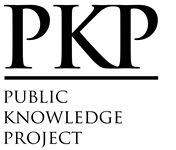The Role of Critical Discourse in the Reproduction of Social and Political Power
Abstract
Nowadays with increasing theoretical criticism of positivism approach, many social and humanities scientists emphasize qualitative methods of research rather than quantitative data collection and statistical analysis. One of the common methods of qualitative research is critical discourse analysis. From the perspective of philosophy, critical discourse analysis is based on structuralism which emphasizes human role (i.e. reduces reality to human structures). This article is to present a review of the origins of critical discourse analysis and influential theoretical schools and expresses the most common and different approaches. The article analyzes the logical implications of the structural foundations of critical discourse analysis. It also comes to the conclusion that diversity in discourse is inseparable from social and political factors. As a result, linguistic diversity reflects structured social differences that creates it.
Full Text:
PDFDOI: https://doi.org/10.5296/jsss.v3i1.7873
Refbacks
- There are currently no refbacks.
Copyright (c) 2015 Abasel Dehchnashki, Zahra Kohi

This work is licensed under a Creative Commons Attribution 4.0 International License.
Journal of Social Science Studies ISSN 2329-9150
Copyright © Macrothink Institute
To make sure that you can receive messages from us, please add the 'macrothink.org' domain to your e-mail 'safe list'. If you do not receive e-mail in your 'inbox', check your 'bulk mail' or 'junk mail' folders. If you have any questions, please contact: jsss@macrothink.org
-----------------------------------------------------------------------------
